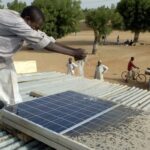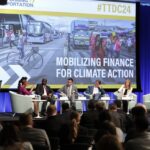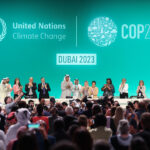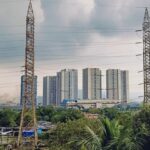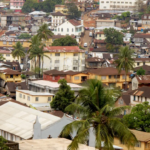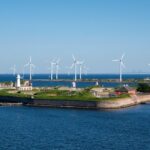Posts tagged with 'net zero'
In the stylish Grünerløkka neighborhood in Oslo, construction workers are busy rehabilitating Sophies Minde, an old medical clinic, into a new nursery school and maternal health center. Tidy piles of building materials along the perimeter of the construction site wait ...

Climate change and social inequality are two of the most pressing challenges of our time. But, in the race to net zero, a narrow focus on decarbonization risks exacerbating inequality and results in a rising tide of “greenlash” (backlash against ...

By early 2025, countries are due to unveil new national climate commitments under the Paris Agreement, known as nationally determined contributions (NDCs). These commitments form the foundation of international climate action, establishing emissions-reduction targets and other measures that countries promise ...

If a picture can tell a whole story, then the image below of an intersection in Dar es Salaam, Tanzania, shows the past, present and future of global transformation in the transport sector. During Transforming Transportation 2024, which focused on ...

India aims to reduce the emissions intensity of its economy by 45% by 2030, compared to 2005 levels, and to achieve net-zero emissions by 2070. The country can’t achieve either goal without a radical transformation in its buildings and construction sector, which was responsible for around 17% of the nation’s ...

By David Waskow, Jennifer Layke, Nate Warszawski, Preety Bhandari, Gabrielle Swaby, Natalia Alayza, Jamal Srouji, Mario Julien Díaz, Edward Davey, Rogier van den Berg, Roman Czebiniak, Paige Langer and Nathan Cogswell on December 19, 2023
The COP28 climate talks began with a new fund to address the increasingly severe losses and damage vulnerable countries face from climate impacts and concluded with the first international agreement to tackle climate change’s main driver: fossil fuels. Those bookends to the Dubai summit ...

In Asia, 14 countries — accounting for 26% of global transport emissions in 2019 — have made economy-wide net zero commitments. Momentum towards zero-emission transport is growing with countries enhancing ambition and including transport-related targets in their nationally determined contributions (NDCs). However, ...

In the Seychelles archipelago in east Africa, flooding and erosion caused by rising sea levels pose an imminent threat to the country’s many low-lying islands. At the same time its mangrove forests, which serve as a vital buffer against these ...

By Sophie Boehm, Clea Schumer, Emma Grier, Louise Jeffery, Judit Hecke, Joel Jaeger, Claire Fyson, Kelly Levin, Anna Nilsson, Stephen Naimoli, Joe Thwaites, Katie Lebling, Richard Waite, Jason Collis, Michelle Sims, Neelam Singh, William Lamb, Sebastian Castellanos, Anderson Lee, Marie-Charlotte Geffray, Raychel Santo, Mulubrhan Balehegn, Michael Petroni and Maeve Masterson on November 20, 2023
Today’s climate change headlines often seem at odds with each other. One day, it’s catastrophic wildfires wreaking havoc around the world; the next, it’s an optimistic piece on the rapid scale-up of solar and wind power. Taken together, such stories ...

Against the backdrop of the Africa Climate Summit and Africa Climate Week, Nairobi hosted the UN Environment Programme’s fourth annual International Clean Air Day for blue skies event with Nairobi City County Governor, Sakaja Johnson, on September 7th, 2023. This ...

Public vehicle fleets, which include everything from city buses and school buses to garbage trucks and law enforcement vehicles, make up a significant share of traffic on U.S. roads. There are 645,000 vehicles in the federal fleet, 500,000 in state fleets across the ...

City officials tasked with reducing and eliminating greenhouse gas emissions from their communities face a tricky task in estimating building emissions as they work to prevent the most harmful impacts of climate change. The biggest challenge is that there isn’t consensus ...

“Climate change is affecting cities all around the world, and Freetown is no exception.” That’s what Eugenia Kargbo, Freetown’s Chief Heat Officer, told UrbanShift during the City Academy hosted in Kigali last year. Through her role—the first of its kind in ...

As the world moves towards a green energy transition, effective, equitable and efficient energy governance is crucial to ensure the energy needs of the most vulnerable populations are met and nobody is left behind. This transition, and the future success ...

To date, over 90 countries have set net-zero emissions targets, committing to help prevent the most harmful impacts from climate change. But questions remain around the credibility of many of these pledges and whether these goals will be met. Together, countries with net-zero targets — which ...













